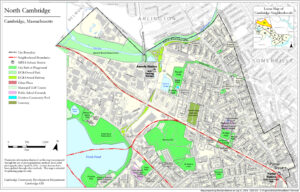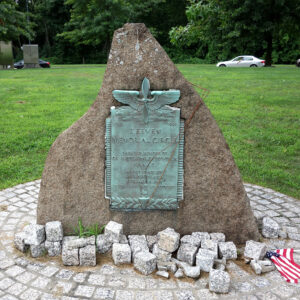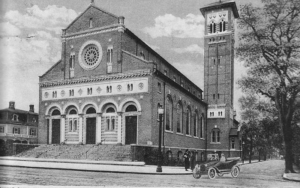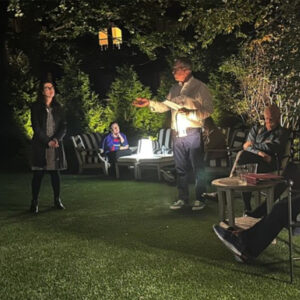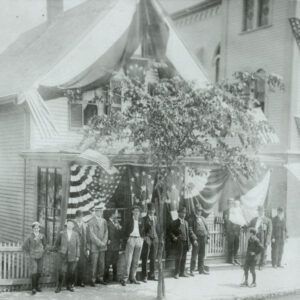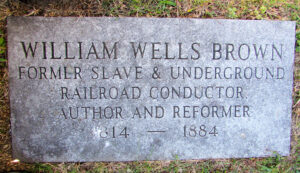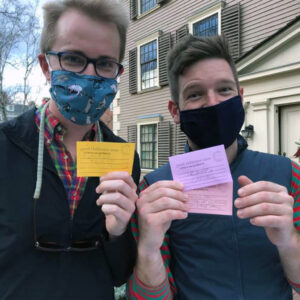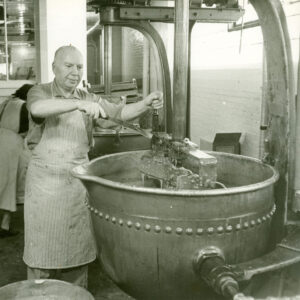Where’s the border? Debate on North Cambridge illustrates many ways to define a neighborhood
Defining a neighborhood is not as easy as it may seem at first glance. This is proving to be particularly true for the focus for 2024: North Cambridge.
Read MoreReader inquiry about plaque on Fresh Pond rotary rediscovers Teeven, a North Cambridge war hero
The marker’s location makes an up-close examination difficult, but it draws attention. Then-Boston Herald columnist Steve Buckley was also intrigued by the memorial and ultimately produced a documentary about it: “I’ll Be Seeing You: An American Story of World War II.”
Read MoreSt. John the Evangelist’s embrace of newcomers turned it into a cornerstone of North Cambridge
The 19th century need for a parish in North Cambridge was fed by industrial development in clay pits and brickyards and the immigrants who worked in these industries, especially Irish and French Canadian Catholics.
Read MoreHelp History Cambridge and The History Project document the LGBTQ+ experience in Cambridge
History Cambridge is working to create a “Queer History Hub.” If you are LBGTQ+ or similarly identifying, consider participating and contributing your story.
Read MoreIf you have a New Year’s resolution to research local history, History Cambridge can be of help
Whatever your interest or motivation about the past, History Cambridge can help you find the resources to conduct your own local history research.
Read MoreA new year, and History Cambridge puts focus onto a new neighborhood: North Cambridge
History Cambridge embarked on programming in 2023 that focuses on one of Cambridge’s 13 neighborhoods each year, and for 2024 it’s North Cambridge.
Read MoreReclaiming William Wells Brown, an abolitionist, lecturer, author and doctor with Cambridge ties
Abolitionist William Wells Brown traveled in the 1800s in support of an immediate end to enslavement and for equal rights for Black Americans brought him around the country, across the Atlantic and ultimately to Cambridge.
Read MoreHistory Cambridge looks back on ‘Good Riddance 2020’ event
Did you participate in our “Good Riddance 2020” event? How do you look back at that event three years later? Have your hopes for 2021 (and beyond) come to fruition? What do you see as the legacy of these past several years in the Cambridge community?
Read MoreCambridge’s candy history is more than just a sweet story
Cambridge’s role as a center of candy-making includes ties to the plantation slavery that dominated the Caribbean economy in the 17th, 18th and 19th centuries.
Read MoreHistory Cambridge’s holiday party looks back on ‘Year of Cambridgeport’
Thursday is History Cambridge’s celebration of this year of Cambridgeport. Stay tuned for information about an upcoming Year of North Cambridge.
Read More
